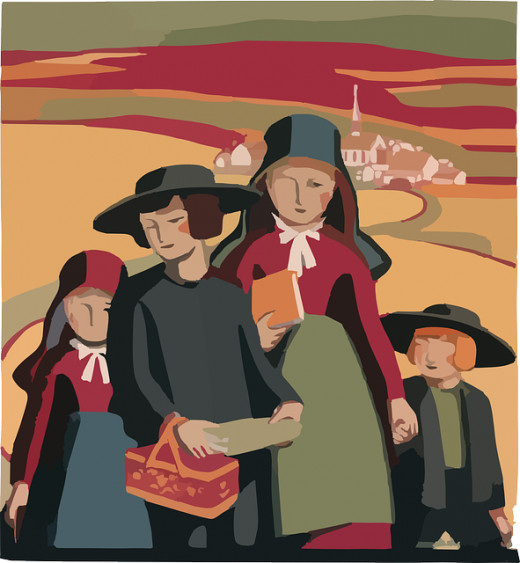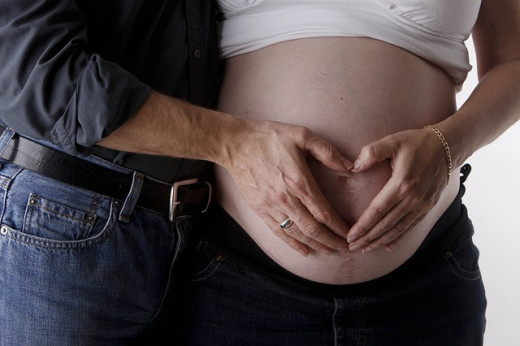The Believer's Struggle with Guilt Part 3 -- Case Studies

Meet Debbie
Debbie hung her head as she approached the foster care agency where she would be visiting with her 11 year old daughter, Linda, for the next two hours. Her emotions were mixed. She was excited about seeing her daughter and longed for the chance to hug her, but she hated herself for the circumstances under which they were about to meet. The visit would be supervised by a ditsy social worker not old enough to be Linda’s mother and without any understanding of what it was like to be in Debbie’s shoes. Debbie’s guilt was overwhelming. She felt guilty for the drug use that had led to Linda being placed in foster care. She felt guilty for not having a good relationship with her mother. If that relationship had been maintained maybe Linda would not be in foster care. She felt guilty for losing her job a week prior. She felt guilty for showing up in clothes that were tattered and faded.
When Debbie became sober, she also became a Christian. She embraced God’s forgiveness, but struggled with the guilt associated with hurting her daughter. During this visit she would take a step towards healing. After the normal hugs and greetings, Debbie sat her daughter down and began to confess that she had made many mistakes and she was sorry Linda was impacted by them. She then asked Linda for forgiveness. Linda, who did not seem to understand the gravity of the conversation, replied, “Oh Mom. I forgave you a long time ago. Do you want to play Twister?”
This conversation was only the beginning of the healing process. Debbie also felt some restitution was needed. She worked very hard to maintain her sobriety and earn increased contact with her daughter. As Debbie began to take more responsibility for her own life and for Linda’s the guilt began to fade. Linda was 16 years old when she went back home to live with her mother.

Meet Cathy
Cathy is busy. She is a stay a home mother of four, only two of which are school age. She is very active in her church and volunteers for everything. She is at the church four days a week often before everyone arrives and after everyone leaves. She is a part of the children’s ministry, the youth ministry, the music ministry, and the beautification ministry. If you need her to preach the sermon she will gladly try. If you ask her why she is so involved, she will tell you, “I don’t have a job so I have extra time,” or “I don’t do it, no one will.”
Cathy struggles because she is not able to say “No” without experiencing a guilty conscious. She is the daughter of a supermom who had similar struggles and can recall her mother telling her how fortunate she was and how she should always be willing to give back.
Years of giving back took their toll on Cathy. Her health began to fail under the constant pressure and her family grew distant. Eventually her health landed her in the hospital for several weeks. Upon her return to church she began looking for ways to return to her former volunteer duties and found all of her positions had been filled by others and they were doing a great job.
When the nursery coordinator asks Cathy if she would like to return to her post, Cathy’s husband steps in and remarks, “No. At least not yet. Cathy still needs to recover.” This single statement changes Cathy’s point of view. Her husband said, “No,” and no one was really harmed. In fact, Cathy did need more recovery time and she had been helped by his saying, “No.”
That evening Cathy sits down with her husband and explains how empowered she was by his statement to the nursery coordinator. He shares his concern with her that she often agrees to do things she did not need to do and he would love for her to focus more on her family than on the church family. At this point, Cathy’s guilt changes from feeling bad about letting church members down to feeling bad about letting her family down. The new guilt is something she could fix. She asks her husband to forgive her and together they decide she would participate in only one ongoing ministry and one special event per year. When people ask Cathy to volunteer in something new, her standard answer is, “My husband and I need to talk about it. I’ll get back to you.” This gives her some time to think through her response and to make certain the task did not interfere with other priorities.

Who do you relate to most?
Meet Mark
Mark is a 14 year old believer who is the younger brother of two All-American football players destined for greatness. He watches as his brothers dedicate every moment of their lives to becoming better players and the hard work and dedication pays off. Mark, however, is not likely to become a football player. Born two months premature, Mark struggles with health problems and is much small than his peers. This has not stopped Mark from being successful though. Mark is very bright. At an early age Mark was skipped ahead two grades at school. As a very young child, his parents told him to always remember Philippians 4:13. He would often repeat that to himself when he was faced with a challenge. He is now a junior in high school and taking college courses. He has never made a B on a report card until now.
A significant portion of Mark’s physics grade depends on a group project. Mark takes the lead in the group but quickly notices his group members are not interested in performing work to meet his high standards. He takes over the project and completes almost all of it himself. During the oral presentation the teacher asks his team members questions about the project and when they are unable to answer the team earns a C. Mark protests the grade after school. The teacher explains that the purpose of the team project was for them to learn teamwork in addition to physics. Mark is able to see that his perfectionism and unrealistic expectations have cost him his treasured perfect report card. His teacher explains that there is another team project coming up and a second chance to get is right. When the project arises, Mark visits his teacher after school to ask what he should expect from his team members and if he was pushing too much. His teacher was happy to assist Mark in understanding the capabilities of his team members. They earned a B+ and Mark was okay with that.
Meet Mike
Mike is a youth minister with a pregnant fiancé. He quickly marries her. He confesses his misdeeds to his pastor and is placed on a six month probation period. He attempts to move forward with life, but guilt nags him on a regular basis. He knows God offers forgiveness, but tells himself because he is a minister he is held to a higher standard and therefore he feels God is still mad at him.
One day Mike’s wife confronts him about his moping and self-condemnation. She shares with him that she has struggled with similar feelings of guilt, but has learned to tell her the truth of God’s forgiveness each time guilt starts to build. With his wife’s support, Mike begins to combat his feelings of guilt with gratitude for forgiveness.

Do you have a story about overcoming guilt? Share it. It may help someone else.








